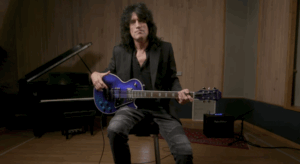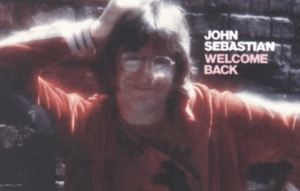Alex Lifeson Opens Up on Writing “Western Sunset” as Farewell to Neil Peart

Alex Lifeson of Rush - ISRAEL HECHEM / Youtube
Rush guitarist Alex Lifeson has shared the deeply personal story behind “Western Sunset,” a moving tribute to his late bandmate and lifelong friend, Neil Peart. The song was written during one of the most difficult moments in Lifeson’s life, capturing the essence of finality, reflection, and love in the face of heartbreaking loss.
In an interview with Guitar Player, Lifeson explained that the inspiration came during a quiet visit with Peart following news of his illness. Sitting on Peart’s balcony in Santa Monica, Lifeson was struck by the imagery of the sun setting through the trees. That moment, serene yet symbolic, would linger in his mind and later form the foundation of “Western Sunset.”
The track, released as part of Lifeson’s 2022 debut album with Envy of None, stands not only as a tribute but also as a reminder of the bond the two musicians shared. It embodies the emotions of closure while offering a musical farewell to one of rock’s most celebrated drummers.
The Sunset as a Metaphor
Lifeson described how the image of the sunset stayed with him as a powerful metaphor. To him, it was more than just the beauty of a day ending—it symbolized the closure of a chapter that could never return. Though another day might follow, the day that had ended was gone forever, mirroring the irreplaceable loss of a friend and creative partner.
This reflection helped him process the pain of Peart’s illness and eventual passing. While the world of Rush was defined by energy, creativity, and relentless movement, the stillness of that sunset offered a contrasting moment of peace. It was in that space between pain and serenity that the seed of “Western Sunset” was planted.
For Lifeson, music became the means of translating that quiet, intimate moment into something universal. The song represents not just his farewell to Peart, but also a way for fans to connect with the same sense of finality and gratitude that he experienced.
Creating a Personal Farewell
When Lifeson began shaping “Western Sunset,” it wasn’t out of obligation but out of desire. He admitted that he didn’t feel pressured to write the tribute, but rather compelled by his heart to honor Peart in the most natural way he knew—through music. The song became a deeply personal gesture, one he is grateful he followed through with.
As Lifeson explained, the act of writing and recording the track was both cathartic and painful. It allowed him to confront emotions that were difficult to put into words, giving him a channel to express love, grief, and remembrance in a way only music could.
The release of “Western Sunset” marked more than just a single composition. It was a significant step in Lifeson’s artistic journey following one of the greatest losses of his life. In honoring Peart, he also found a way to move forward creatively, even if the scars of loss remained.
View this post on Instagram
The Legacy Beyond Rush
Neil Peart’s death in 2020 not only marked the end of Rush’s four-decade legacy but also left Lifeson and Geddy Lee to face the immense challenge of life beyond the band. While the music world reacted with a flood of offers and proposals, including drummers eager to audition, Lifeson and Lee chose a different path. Rather than attempting to replace Peart, they focused on preserving their friendship and memories.
This decision highlighted just how unique Peart’s role had been—not simply as a drummer, but as the lyrical and creative force behind much of Rush’s identity. To move forward as if he were replaceable felt impossible. The bond the three shared could not be replicated or substituted.
Thus, “Western Sunset” stands as more than a song—it is Lifeson’s final musical farewell to Neil Peart. It captures the serenity of their last shared moments, the pain of loss, and the beauty of friendship that defined Rush’s story. In doing so, it ensures that Peart’s spirit continues to resonate through the music that was his life’s work.












